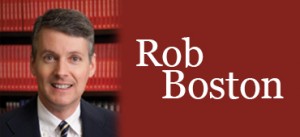Checking the Privilege of Religious Groups in American Politics

NOW THAT DONALD TRUMP has nailed down the Republican Party’s nomination for president and Hillary Clinton is the presumptive Democratic nominee, we can look forward to certain things: attack ads on television 24/7, constant polling by news organizations, a parade of self-identified political pundits analyzing every development to death and a long slog to November.
Ah, American politics! What could be better?
We’ll also hear about the role of the religious community in the election. Despite what many conservatives would have you believe, religious voices are in no way stifled by the political process. In many ways, their voices are loud, and the position they occupy is one of privilege.
It’s true there’s a federal law dating back to the 1950s that prohibits nonprofit, tax-exempt organizations holding 501(c)(3) status, a category which includes houses of worship, from intervening in elections by endorsing or opposing candidates for public office. However, as I and others have noted before, it’s rarely enforced when it comes to religious groups.
Why is that the case? For starters, it can be hard to enforce this provision because Congress has passed special laws to protect houses of worship from “interference”—even when they may be acting unlawfully.
The Internal Revenue Service can audit secular non-profits if the tax agency has evidence of wrongdoing, such as information showing engagement in partisan political activity on behalf of candidates or a pattern of misusing donor funds. But audits of houses of worship are treated differently. Under federal law, churches can only be audited under extreme circumstances, and all such audits must be personally approved by a “high-ranking” IRS official.
So who exactly qualifies as high-ranking at the IRS? Remarkably, even the tax agency doesn’t know. The IRS reorganized some years back, and it remains unclear which official holds the awesome power to sign off on a church audit. The result is that there are no church audits, even in the face of blatant abuses.
Every now and then the media will get riled up about this. Perhaps you’ve seen an exposé on television about some big-haired TV preacher raking in millions from impoverished folks while he flies coast to coast in a private jet, lives in a palatial estate, and vacations on his private island. You may wonder how he gets away with it. After all, if a secular nonprofit enriched its CEO like that, its top officials would be in prison. When it comes to religious groups, government officials who hold power are paralyzed and often don’t act.
You might also wonder how much money some of these large churches have. Estimates are thrown around, but no one really knows. They aren’t required to tell anyone. Most secular nonprofits must by law file a detailed financial statement every year called a Form 990. It must be made available for public inspection. Houses of worship are free from this requirement.
How much are religious denominations spending on lobbying in the U.S. Congress and in the state legislatures in an attempt to influence legislation or sway the results in ballot referenda? Again, all we can do is estimate because—you guessed it—religious groups aren’t required to report it except in a handful of states.
At the federal level, strict rules govern how much money and time secular 501(c)(3) groups can spend lobbying. Meticulous record-keeping is required to make certain that these limits aren’t exceeded. Here again, religious groups don’t have to worry about it. They’re exempt.
I don’t cite all of these examples to insist that they be changed. In some cases, the separation of church and state does require that the government not unduly meddle in the internal affairs of religious groups. But when those groups face outward and attempt to affect the course of elections or change the laws that all of us must live under, it doesn’t seem unreasonable to expect some accountability to the public. Alas, there is little.
California is one of the few states that requires religious groups to report the money they spend on ballot initiatives. The process isn’t perfect, but at least it exists—which is more than you can say for most states.
Yet loopholes remain. In 2008 voters narrowly approved Proposition 8, which banned same-sex marriage in the state. The Church of Jesus Christ of Latter-day Saints was involved in the effort and later had to pay a small fine for not reporting all of its expenditures in a timely manner.
But how much did the church spend? No one seems to know. According to some reports, $22 million in Mormon money flowed into California during the Prop. 8 vote. LDS officials insisted this was just individual church members who were motivated to give because they favor “traditional marriage.” Critics believed the campaign was organized by the church’s hierarchy who leaned on members to donate and funnel money into the state.
In either case, voters might find this information relevant as they judge a ballot initiative. A church and its members are spending a lot of time, effort, and possibly money to get you to vote a certain way. Why?
Asking that question doesn’t make you a “bigot”—despite what some religious leaders claim.
As the election proceeds, religious voices will be heard. There’s no attempt to stifle them. Yes, in our often boisterous democracy, they will have to compete with other voices clamoring to gain the public’s attention. But their right to participate is secure. In many ways, it’s more than secure. It’s absolutely privileged.
